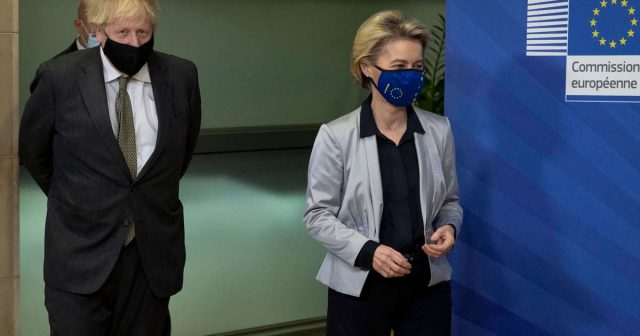express– The Commission chief will today give the green light to the recovery plans of Croatia, Cyprus, Lithuania and Slovenia, reaching the overall number of 16 spending plans approved across the bloc. But today’s virtual meeting of the EU finance ministers will be the last of the season until September 10, leaving yet 11 member states short of approval.
EU ambassadors are expected to discuss the plans from the Czech Republic and Ireland, already endorsed by Ms von der Leyen, in September.
But, despite the pressing urgency of member states receiving the bloc’s recovery funds, the Commission President will still have to look at plans from Estonia, Finland, Malta and Sweden when she and her team will return from the summer break.
To make things worse for the EU chief, the Netherlands and Bulgaria are still discussing their respective plans within their parliament due to coalition talks in both countries.
And, of course, Hungary and Poland will remain unaccounted for as the two countries continue to battle Brussels over rule of law issues.
The Commission withheld its approval of Viktor Orban’s recovery plan over allegations of corruption against his government and the implementation of an anti-LGBT+ law.
Warsaw, on the other hand, is seeing its recovery proposals put on hold over its dispute with Brussels on a controversial judicial review in the country.
The Hungarian Prime Minister, however, hit back at the Commission chief over the weekend threatening to go solo on the quick refunding of his country’s recovery.
He told local radio on Friday: “The most important feature of the recovery programme is that it is fast, so that we in the European Union have set up these resources at an unusually fast pace as soon as possible.
“To delay – now I see that the European Union will be asking for a two-month postponement to continue the negotiations – is questioning the very meaning of the recovery fund.
“What can the Hungarian government do? Of course, this money is ours, it belongs to us. There is not much debate about this, they can delay it, but they cannot refuse to give it up, because this is – I say again – not a gift, but it comes to us, as we pay into the Union’s budget, we have now undertaken to implement the Union’s long-term economic policy, consequently, this amount is due to us.
“But time matters. Therefore, the government has decided to create a recovery fund, the Hungarian recovery fund, within the economic protection fund, and we will now launch the same programs that we have already partially approved with Brussels.”
He added: “Today, the Minister of Finance will come to me to discuss the details of this, we will launch these programs, and if money comes from Brussels, if not, we will pay this out of the Hungarian budget.
“Then the money will arrive from Brussels when it arrives, but here it could easily not be because of a protracted ideological war.
“The argument of corruption is also often mentioned, but we were already close to an agreement, and suddenly we became very corrupt after the adoption of the Child Protection Act.
“This is a cover story obviously, an excuse, here, in fact, the focus is on child protection law.”
In total, €393bn has been allocated so far from the bloc’s pot, with Italy taking the lion’s share of €191.5bn and Spain €69.5bn.
The measures approved in the national plans are centred around six policy areas set out in the regulation establishing the Recovery and Resilience Facility.
The areas include the green and digital transition, smart, sustainable and inclusive growth, and social and territorial cohesion.
Individual member states’ measures to achieve recovery and enhance the EU’s resilience include, for example, decarbonisation of industry, building renovation, digitalisation of public administration and reskilling of the labour force.
The plans also address the country-specific recommendations identified in the course of the 2019 and 2020 European Semester discussions.







